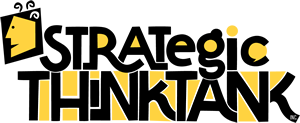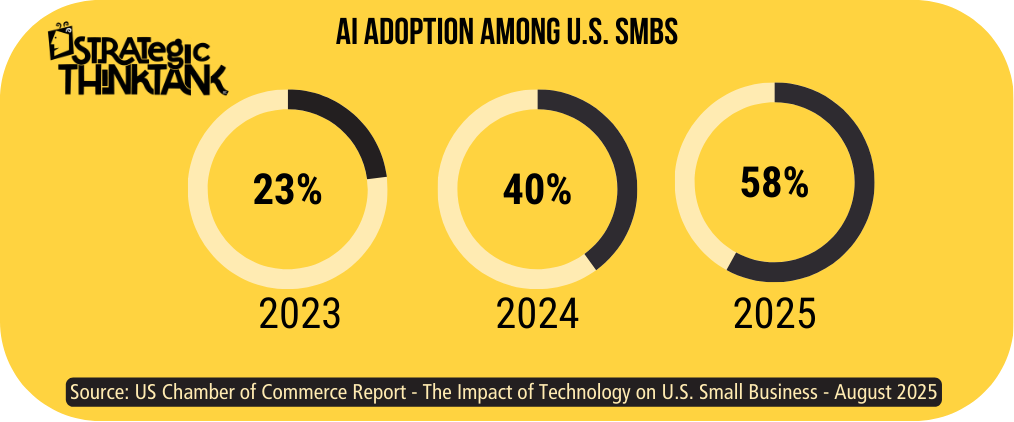Generative AI is quickly becoming an essential element of the small business toolbox. In just two years, adoption among U.S. small businesses has jumped from less than one in four to a clear majority.
So how are early adopters using it? Nearly two-thirds (63%) of SMBs primarily rely on AI tools developed by external providers, such as ChatGPT or Shopify integrations, while fewer than 1 in 10 (8%) are building AI in-house.
Among active users, 44% rely on chatbots to handle routine customer questions, 20% utilize coding assistants to streamline technical tasks, and 16% experiment with image generation to support marketing and branding efforts. Others are applying AI to inventory management and workflow efficiency.
Just as importantly, almost all adopters are investing in their people. 98% are upskilling staff so employees can work confidently with these tools, and more than one-third are now incorporating AI skills into their hiring criteria. This signals that AI is as much about workforce readiness as it is about technology.
Why AI Adoption Matters for Entrepreneurs
This discussion suggests a clear shift in how entrepreneurs think about AI. It’s no longer a distant “nice to have.” It’s being used to save time, strengthen customer relationships, and create efficiencies that help smaller firms compete with larger players.
And while the report shows eye-catching results: 85% of adopters report increased sales and 84% higher profits, it’s important to keep these in perspective. AI by itself doesn’t guarantee growth. The businesses seeing real impact are those using AI as part of a broader strategy that also includes customer focus, financial discipline, and smart use of other digital tools.
Workforce Upskilling and the AI Readiness Gap
Beyond tools, the workforce story is critical. With candidate quality already a major concern for many business owners, early adopters are signaling the importance of building internal AI capabilities. Nearly all AI-using SMBs are training staff to stay current, and 36% now hire specifically for AI skills. This reinforces the idea that AI adoption is not just a technology decision, but a workforce strategy.
Practical Steps for Small Businesses Yet to Adopt AI
The lesson from early adopters is to start small and intentional. Look for simple, practical entry points such as drafting marketing content, setting up a chatbot to answer common customer questions, or experimenting with AI tools that support back-office efficiency.
Just as critical, invest in learning and upskilling so you and your team feel confident using these tools responsibly. Pair AI adoption with your broader strategy, not as a shortcut to growth.
Where Do You See the Best Starting Point for AI in Your Business?
The opportunity is real, but so is the responsibility to approach AI wisely. The question is how late adopters will integrate it into their day-to-day operations in a way that delivers value.
Where do you see the best starting point for AI in your business?

